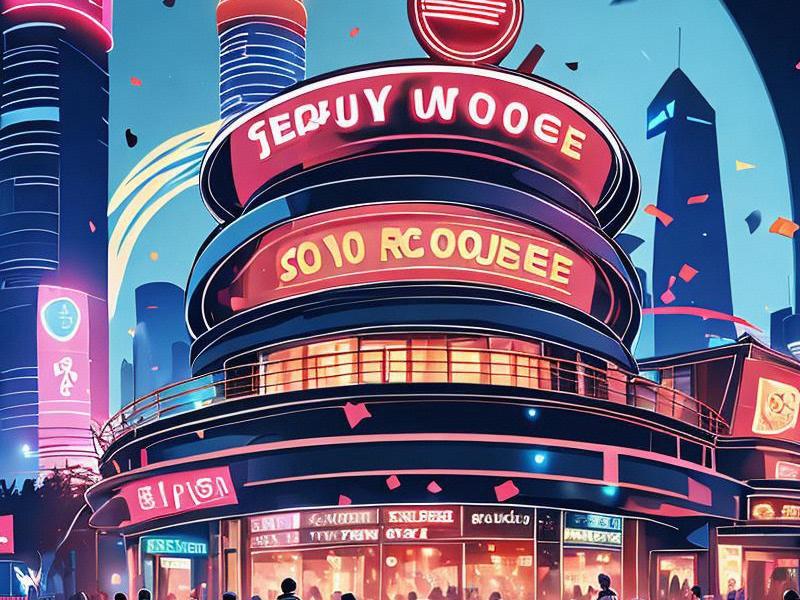In the heart of Shanghai, a city that never sleeps, the entertainment clubs have become a vibrant hub of nightlife and urban culture. These establishments are not just places to dance and drink; they are melting pots of social interaction, artistic expression, and cultural exchange. This article delves into the transformation and current state of Shanghai's entertainment clubs, exploring their role in the city's nightlife scene and their impact o

Shanghai, with its rich history and rapid modernization, has always been a city of contrasts. From the historic Bund to the futuristic skyline of Pudong, the city is a testament to China's economic and cultural evolution. In recent years, Shanghai's entertainment clubs have undergone a renaissance, reflecting the city's dynamic spirit and the changing tastes of its residents.
Historically, Shanghai was known as the Paris of the East, a cosmopolitan hub where people from all over the world came to live, work, and play. The city's nightlife during the 1920s and 1930s was legendary, with jazz clubs, cabarets, and speakeasies serving as the backdorpfor a thriving arts and entertainment scene. However, after the founding of the People's Republic of China in 1949, the city's nightlife underwent a significant transformation, with many entertainment venues closing down or being repurposed.
The economic reforms of the late 20th century and the rise of a burgeoning middle class in the 21st century brought about a resurgence of nightlife in Shanghai. The city's entertainment clubs have evolved to meet the demands of a new generation of young professionals and international visitors. Today, Shanghai boasts a diverse range of clubs that cater to various tastes and preferences.
One of the most notable changes in Shanghai's entertainment clubs is the emphasis on high-quality sound systems, state-of-the-art lighting, and innovative designs. Clubs like Bar Rouge, M1NT, and The Nest have become synonymous with luxury and exclusivity, attracting celebrities, socialites, and business elites. These venues often feature world-class DJs, live music performances, and extravagant events, creating an atmosphere of opulence and excitement.
夜上海最新论坛
However, the city's nightlife scene is not limited to high-end clubs. Shanghai also has a thriving underground music scene, with bars and venues like The Shelter, Womb, and Mao Livehouse hosting everything from indie rock bands to electronic music festivals. These establishments provide a more intimate and authentic experience for music enthusiasts, fostering a sense of community and creativity.
The rise of entertainment clubs in Shanghai has also been accompanied by a growing awareness of social responsibility and sustainability. Many clubs have implemented measures to reduce their environmental impact, such as energy-efficient lighting, waste reduction programs, and support for local artists and musicians. Additionally, some venues have become platforms for social activism, organizing charity events and raising awareness about important issues.
The impact of Shanghai's entertainment clubs extends beyond the nightlife scene. These establishments play a crucial role in the city's cultural and economic development. They attract tourists from around the world, contributing to the local economy through tourism revenue and job creation. Moreover, the clubs serve as venues for cultural exchange, bringing together people from diverse backgrounds and fostering mutual understanding and respect.
上海龙凤阿拉后花园
The social scene at Shanghai's entertainment clubs is equally diverse and dynamic. These venues provide a space for people to connect, network, and unwind after a long day at work. Whether it's a business executive unwinding with colleagues, a group of friends celebrating a special occasion, or a young professional meeting potential partners, the clubs offer a unique environment for social interaction.
However, the rapid growth of Shanghai's entertainment industry has not been without challenges. The increasing competition among clubs has led to concerns about over-commercialization and the loss of authenticity. Additionally, issues such as noise pollution, safety, and the impact on local residents have sparked debates about the need for better regulation and management.
To address these challenges, the Shanghai government has taken steps to promote a more sustainable and inclusive nightlife scene. Regulations have been introduced to ensure that clubs operate within designated areas, minimizing the impact on residential neighborhoods. Safety measures have also been enhanced, with increased police presence and stricter security protocols to protect patrons and staff.
上海品茶网
The future of Shanghai's entertainment clubs looks promising, as the city continues to evolve and adapt to the changing needs of its residents and visitors. The rise of new technologies, such as virtual reality and augmented reality, is expected to revolutionize the nightlife experience, offering immersive and interactive entertainment options. Additionally, the growing popularity of themed parties and experiential events is likely to attract a wider audience and keep the nightlife scene fresh and exciting.
In conclusion, Shanghai's entertainment clubs are a testament to the city's dynamic spirit and cultural diversity. They have become an integral part of the city's nightlife scene, providing a space for people to connect, create, and celebrate. As Shanghai continues to grow and evolve, its entertainment clubs will undoubtedly play a crucial role in shaping the city's future and defining its identity on the global stage.